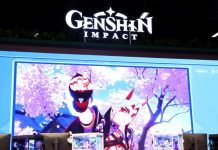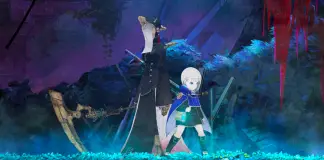It’s an open secret that modern gacha games are exploitative, but for the first time, we’re seeing the American government push back against one of the biggest proponents. A newly published settlement between the FTC and HoYoverse, developer of Genshin Impact and Zenless Zone Zero among others, targets HoYoverse’s unchecked permissions for children to play and exploitative microcurrency systems—but its gacha requirements might be literally game-changing.
The more widely-discussed parts of the settlement out there are a $20 million fine, which is massive in theory but small fry compared to what many believe the company makes, and the actions to protect children.
The FTC believed and claimed HoYoverse was collecting information of those under 18 in violation with the Children’s Online Privacy Protection Rule, one of the oldest online protection laws in America. HoYoverse games, indeed, were found to not be collecting the age of its players to ensure underage players weren’t engaging. (Children quite often lie about that, but that’s besides the point.) They were also found to be ignoring posts where users explicitly claimed they were under 13 (which has also unfortunately become common) and taking appropriate action, such as restricting social media access to those players. Known data about under-13 players will be required to be deleted.
However, the biggest change may actually be good for its entire player base’s gambling health: HoYoverse will be forced to unveil its odds for rolling items within loot boxes. The FTC accused HoYoverse of deceptive practices to its users,
As a result, the settlement requires HoYoverse to disclose in all of its games:
-
The likelihood a consumer will obtain any digital content or merchandise prominently featured or depicted at the point of sale via a Covered Mechanism, or in the promotion of digital content or merchandise accessible by a Covered Mechanism, placed in Close Proximity to the digital content or merchandise featured or depicted; and
-
The range of potential total costs in U.S. dollars, or applicable fiat currency, if the user used only fiat currency to acquire featured digital content or merchandise via a Covered Mechanism.
Here, “Covered Mechanism” is essentially the legal term for a loot box, where a player needs to pay for “item(s) of digital content or merchandise that will be provided are determined by chance; require numerous purchases or attempts to purchase to guarantee receipt of a specified item; or both.” The more you know, since chances are high we’ll be seeing more cases like this in the future.
Indeed, HoYoverse games, and many modern “gacha” games, have been fairly cryptic about their odds. There are “pity” systems that allow players to get a guarantee of a certain roll after a number of attempts, but for particularly desirable outcomes, these often hover close to 100 required rolls—and with each roll costing a bit of real money, it adds up. The changes will cut out a lot of speculation about the true odds until that point.
It’s not the first time we’ve seen a government force this sort of action, as many years ago, some European countries required video games to disclose odds, with the Netherlands going as far as requiring the game to disclose what the next “roll” will be.
This past September, a European Union watchdog group called out certain specific practices that the FTC calls out as far as virtual currency and microtransactions go.
[Update 3:45 pm PT] A HoYoverse representative reached out to MMORPG.com after publication of this article to share a statement from the developer, which has also been posted on the official website.
“Animation-style games and shows are well-received by global audiences and players across various ages. Genshin Impact is a popular free-to-play, anime-style game designed for older teens and adults. While we believe many of the FTC’s allegations are inaccurate, we agreed to this settlement because we value the trust of our community and share a commitment to transparency for our players. Under the agreement, we will introduce new age-gate and parental consent protections for children and young teens and increase our in-game disclosures around virtual currency and rewards for players in the U.S. in the coming months.”





































